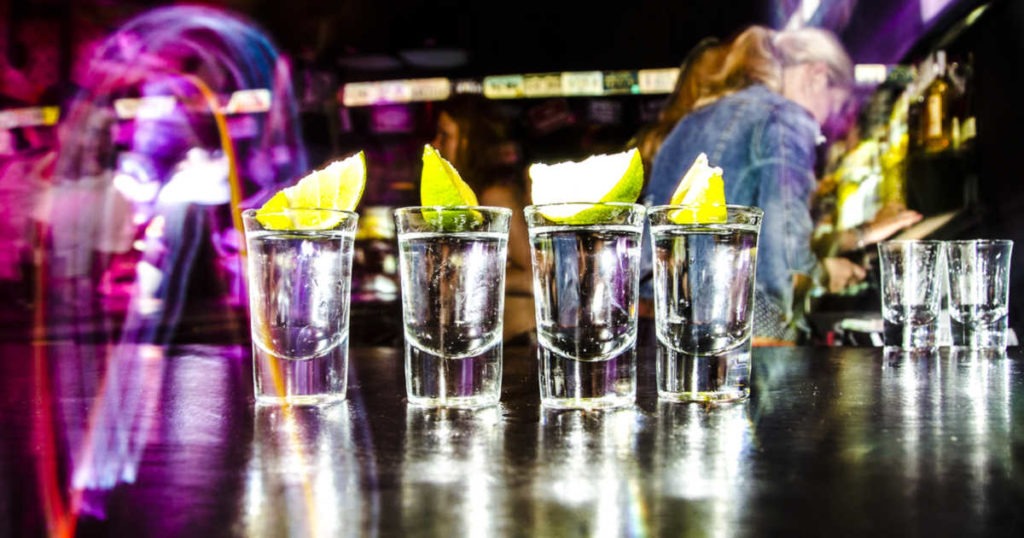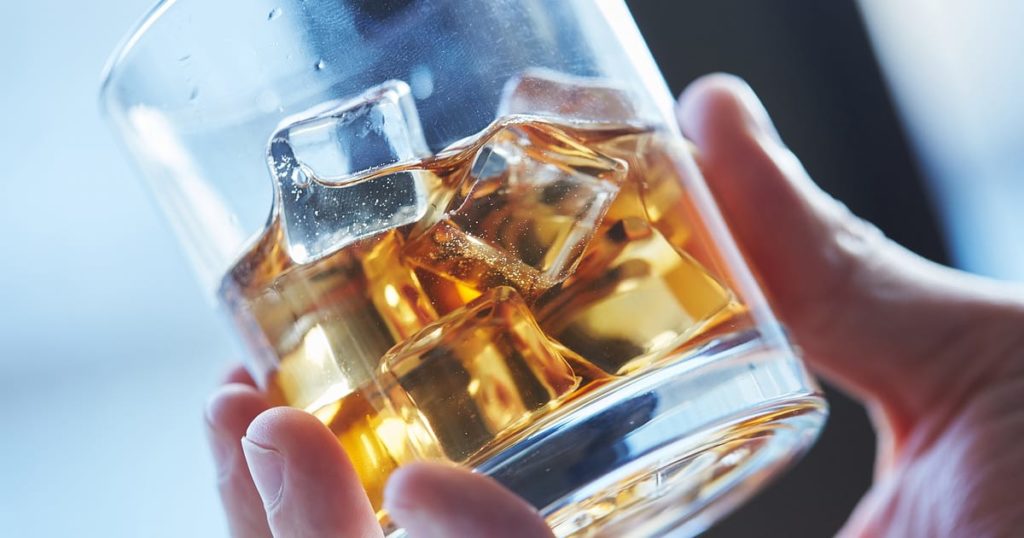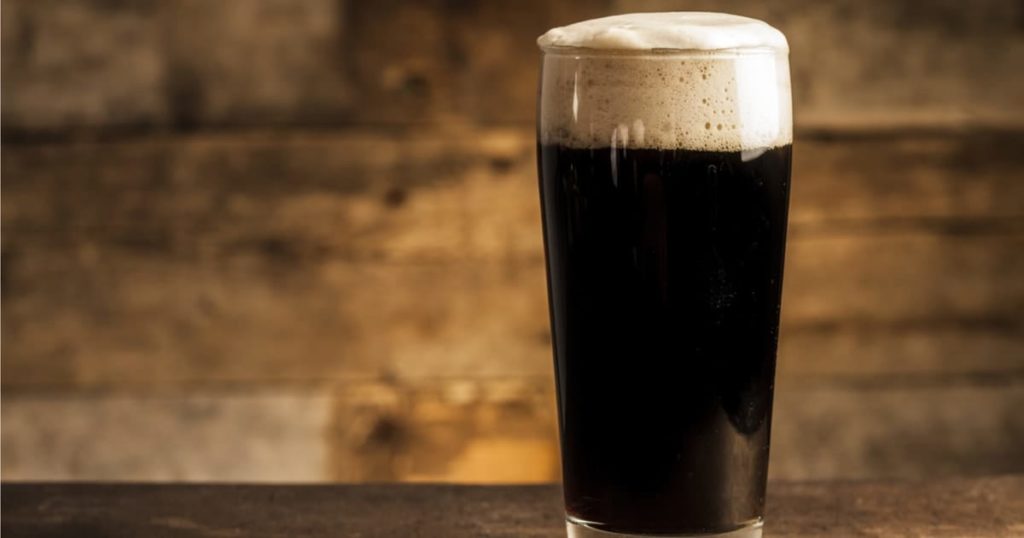Why do people overindulge when drinking alcohol? Some people drink too much because they’re struggling with addiction to alcohol, but not everyone who drinks heavily is physically dependent on the legal substance. Whatever the case may be, experiencing problems related to alcohol consumption can be a sign of underlying issues that need to be addressed.
If you or a loved one is overindulging and binge drinking alcohol, contact our compassionate team at The Right Step in Texas. Our alcohol addiction treatment options can help you reclaim your life.
What Is Binge Drinking?
Binge drinking is a common struggle for many. The National Institute on Alcohol Abuse and Alcoholism (NIAAA) defines binge drinking as a pattern of alcohol use that results in a blood alcohol concentration (BAC) of 0.08% or higher. This pattern manifests as the consumption of a large amount of alcohol in a short period—typically around four drinks in two hours for the average woman or five drinks for the average man.1 It can lead to challenges that feel overwhelming, leaving people caught in a cycle of wanting to stop but finding themselves repeating the behavior. Understanding why binge drinking happens is an important step toward breaking free and finding hope in recovery.
Unlike physical alcohol dependence, binge drinking often stems from other factors. It has more to do with psychological dependence. For many, it is influenced by how socially acceptable alcohol use is in today’s world. From holiday gatherings to sporting events, alcohol is often at the center of Americans’ social lives. The effects of alcohol—like lowered inhibitions and temporary stress relief—can make it especially appealing during moments of overwhelm or emotional difficulty.
Psychology plays a significant role as well. Many binge drinkers experience a “false sense of control,” believing they can stop anytime or that their drinking won’t escalate. This overconfidence can lead to repeated patterns of overindulgence. For others, negative emotions such as stress, sadness, or frustration may drive them to drink excessively in an attempt to escape or numb their feelings.
If you or someone you care about struggles with binge drinking, know that you are not alone. At its core, binge drinking is a challenge—but it can be overcome with understanding, support, an understanding community, and the right tools for recovery.
Understanding the Psychology of Alcoholism
Alcoholism is a challenging and complex disorder, but recovery is always possible with the right support. Understanding the psychology behind alcoholism is an important step in recognizing the signs and seeking help—whether for yourself or someone you care about.
Alcoholism often involves a struggle with self-control and a strong urge to drink, even in the face of negative consequences. Several factors may increase someone’s vulnerability to alcohol use disorder (AUD), including:
- Genetic predisposition
- Environmental influences
- Mental health challenges like anxiety or depression
- Social pressures and norms
Psychology also plays a key role in healing and recovery. Evidence-based treatments, like cognitive-behavioral therapy (CBT) and motivational interviewing (MI), empower people to develop healthier coping strategies and transform their relationship with alcohol. These approaches, along with the support of a compassionate community, provide a path forward.
Recognizing the emotional and psychological aspects of binge drinking and alcoholism is essential for addressing these issues with care and understanding. If you or someone you love is struggling, know that it’s never too late to seek help. Recovery is a journey, and with the support of qualified professionals and a strong community by your side, brighter days are ahead.
How To Stop Binge Drinking
Common triggers of binge drinking include social pressure or influence, emotional distress, and boredom. Binge drinking can have serious consequences, such as accidents, falls, or even drowning, and it’s often tied to deeper emotional struggles. Suppose you’re using alcohol as a way to manage anxiety or emotional pain. In that case, a compassionate mental health professional can help you uncover the root of those feelings and guide you toward healthier coping strategies.
Here are a few tips for how to stop binge drinking and regain control over your life:
- Seek professional support – Don’t be afraid to seek help from a qualified therapist or counselor who specializes in addiction treatment.
- Surround yourself with a supportive community – Build a network of people who understand and will support you on your journey toward recovery.
- Identify and address underlying issues – Addressing the root cause of your binge drinking, whether it’s stress, trauma, or something else, is crucial for long-term success.
- Find healthy coping mechanisms – Explore new hobbies or activities that bring joy and fulfillment into your life instead.
The journey to overcoming binge drinking starts by understanding the unique challenges you’re facing. The best approach depends on the severity of the issue and what’s driving it. If you’re physically dependent on alcohol, an inpatient rehabilitation program can provide the medical supervision and support you need to detox safely. For those who binge drink occasionally and may not be physically dependent, behavioral therapy can offer powerful tools to help change patterns and regain control.
Acknowledging that binge drinking is a problem takes courage, and it’s the first step on the road to recovery. With the proper support, you can find solutions to moderate or stop this behavior, allowing you to reclaim your life and build a healthier, brighter future. Remember, you’re not alone—there’s a community ready to walk this path with you every step of the way.
Connect With The Right Step in Texas and Stop Binge Drinking Today
If you or a loved one is struggling with binge drinking, The Right Step can help. As a Promises Behavioral Health company, our alcohol addiction treatment program offers inpatient and outpatient care that focuses on the psychology of binge drinking and helps clients develop healthier coping mechanisms to deal with stress and emotional discomfort. Contact our team online or call 888.488.6017 today to learn more about how we can help.
Footnote:






